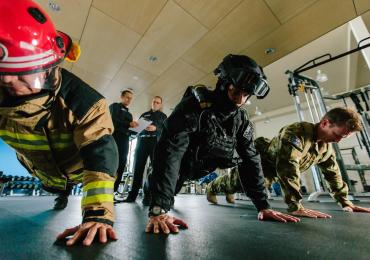
- During Mindfulness Meditation (MM), I sit with my back straight, feet on the floor, eyes closed, and muscles softly engaged.
- I breathe normally and notice the physical sensations of my breathing.
- If my attention wanders from my breath, I notice, and return my attention back to the sensations of my breathing.
- As I do this, thoughts, memories, or emotions come gently into my awareness.
- Because I have been engaged with MM over many years, I know when the thought, memory, emotion, or physical sensation is unresolved.
- I know this because I have become so aware of what my breathing feels like, that when it differs, such as a hesitation or slight catch occurs, that informs me there is an issue that has not been settled for me.
- When that happens, I sit with it. I stay with that thought, emotion, sensation, or memory.
- While sitting with it, I will begin to understand what the unresolved issue is about.
- As I sit, I allow it to begin to resolve. I see all sides of it. I watch it as I might watch ”people watch” – seeing the actions, but not emotionally involved in them. Many ideas enter my mind and I let them wash over me and disappear.
- That which is unsolved unwinds and is diminished. Sometimes, it goes away entirely. However, if it does not depart entirely. I don’t worry about it. I do not fret that it remains.
- I know that any residual will come up and I will notice it by the movement of my own breath during another meditation.
- Over time, it will fade away. It will vanish and I will remain – free of whatever negativity had been within.
Meditation clears us in that way. Wiping clean transgressions bestowed upon us by others that we’ve not been able to reconcile, as well as offences we imparted upon others or on ourselves.
This meditation is active. It is as if we are doing our own deep psychological counseling. On those days when nothing untoward comes during a meditation, we bask in the quiet, trusting this process of peace. We receive messages of understanding and positivity. Some might say it is our own brain and body communicating with each other. Others say we are hearing from our Higher Self, our Light Within, or from deities or Guides. While the where is debatable, the fact that it happens is not.
Regular practice of Mindfulness Meditation (MM), aka Mindfulness-based Stress Reduction (MBSR) has been shown to reduce negative affect and increase positive affect (Rice, unpublished data). Those who demonstrate more frequent positive affect also self-report as happier (Crowley, Kapitula, and Munk, 2020). Happy people exhibit greater success and both personal characteristics and behaviors that are associated with accomplishments in multiple areas of ones’ life.
Should YOU meditate? It depends. Do you want to be happier?
Crowley, C., Kapitula, L. R., & Munk, D. (2020). Mindfulness, happiness, and anxiety in a sample of college students before and after taking a meditation course. Journal of American College Health, 70(2), 493–500. https://doi.org/10.1080/07448481.2020.1754839
Lyubominsky, S., King, L., and Diener, E. (2005). The benefits of frequent positive affect: Does happiness lead to success? Psychological Bulletin, APA, 131 (6), 803-855. DOI: 10.1037/0033-2909.131.6.803
Rice, V (unpublished data).



